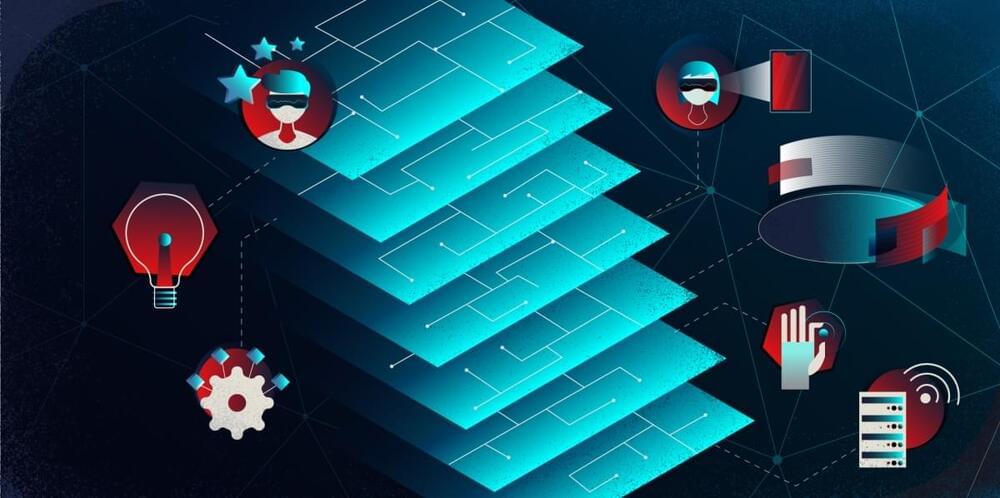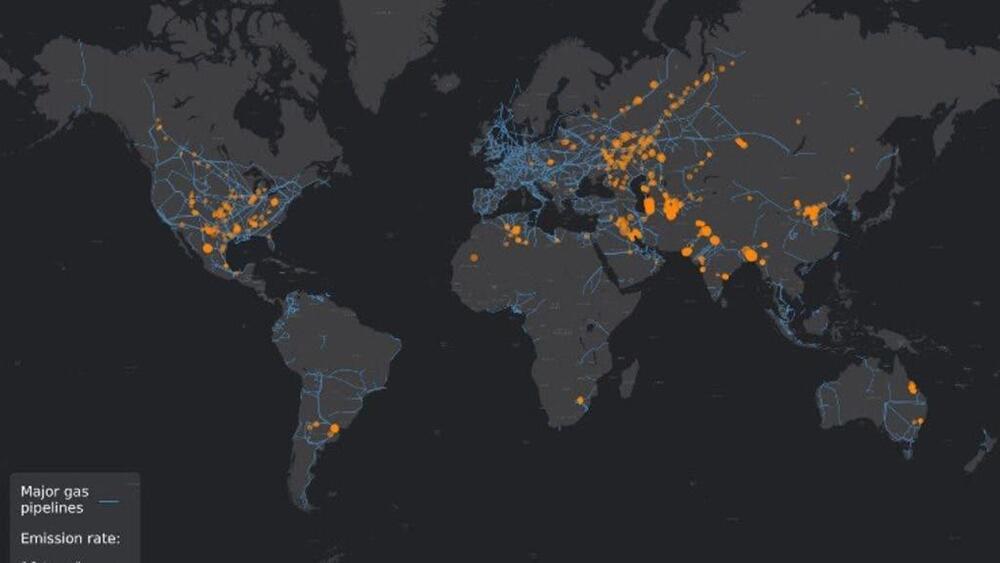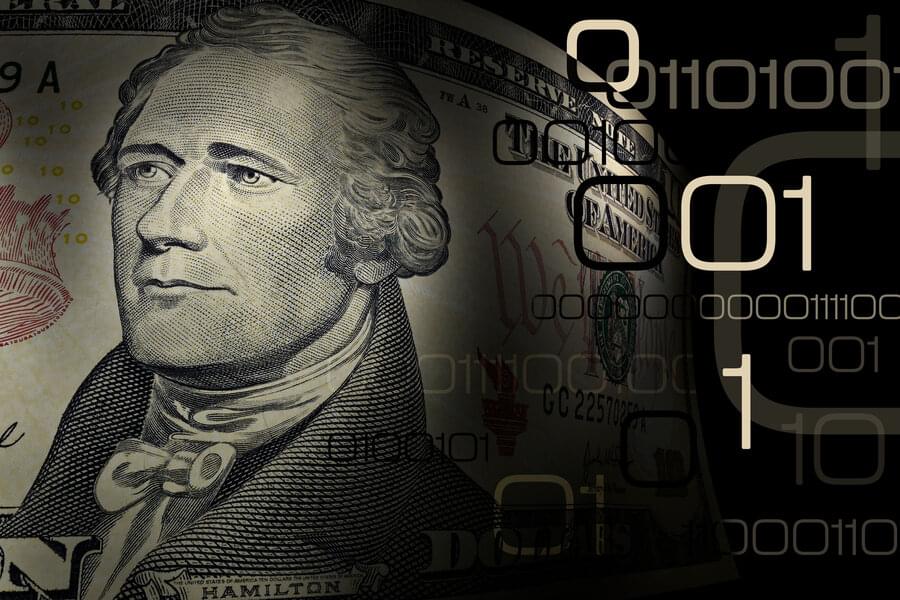We can summarize this as:
Price = Demand / Supply.
When there is more demand or less supply, the price goes up. When there is less demand or more supply, the price goes down. This is basic economics.


TOKYO, Feb 15 (Reuters) — Japan’s economy rebounded in the final three months of 2021 as falling coronavirus cases helped prop up consumption, though rising raw material costs and a spike in new Omicron variant infections cloud the outlook.
Bank of Japan Governor Haruhiko Kuroda also highlighted escalating tensions in Ukraine as a fresh risk to the central bank’s forecast for a moderate economic recovery.
The world’s third-largest economy expanded an annualised 5.4% in October-December after contracting a revised 2.7% in the previous quarter, government data showed on Tuesday, falling short of a median market forecast for a 5.8% gain.

While it’s difficult to put something as vast, conceptual, and, frankly still emerging as the metaverse in quantifiable terms, Jon Radoff breaks it down logically and thoroughly.
When it comes to describing the metaverse, definitions and opinions abound. And while it’s difficult to put something as vast, conceptual, and, frankly, still emerging as the metaverse into quantifiable terms, Jon Radoff, entrepreneur, author and game designer, breaks it down logically and thoroughly in Measuring the Metaverse. He moves up the value chain from infrastructure at the bottom to experience at the top, stopping at human interface, decentralization, spatial computing, creator economy, and discovery along the way.
A common framework is necessary in Radoff’s view of the metaverse. He writes, “And while there will be many proprietary (and very fun) theme parks in the metaverse, I’m even more excited by the opportunity in the Switzerlands: a metaverse powered by a robust creator-economy enabled through decentralization.”
This, of course, isn’t the first seven-layer model to lay out a critical framework. The IT world has long adhered to the seven layers of the OSI Model to organize networking functions into a universal set of rules and requirements to support interoperability among different products and software. Perhaps Radoff’s seven-layer model will become a similar conceptual framework for the metaverse.
Before the pandemic started (ah, those glorious days…) a collective panic was mounting over automation and robots gradually replacing workers in various fields, or “stealing our jobs,” as the common refrain went. These worries haven’t subsided two years later, but they’re being countered by severe and largely unexpected labor shortages across multiple sectors of the economy. One of the industries that’s struggling most is restaurants. While we may still encounter automation-related unemployment problems down the road, right now it seems robots are lending a much-needed hand in food service.
One of these robots is none other than Flippy, initially debuted in 2017 to flip burgers at a California fast food chain. Since then Miso Robotics, Flippy’s maker, has expanded the bot’s capabilities, creating a version that can cook chicken wings, fries, and other greasy delights. This week also brought a significant expansion to Flippy’s presence as White Castle announced plans to install the robot at more than 100 restaurants this year.
White Castle was the first restaurant chain to significantly invest in Flippy, piloting the robotic assistant in 2020. The chain gave feedback about the robot to Miso, and the company put out a second iteration called Flippy 2 last November. This new robot can independently do the work of an entire fry station: its AI-enabled vision identifies foods, picks them up, and cooks them in fry baskets designated for that food specifically. The bot then moves cooked items to a hot-holding area.

The Adam Smith Institute (ASI), a neoliberal think tank based in London, UK, has published a new report on property rights in space. It suggests dividing the Moon into regions and privatising it, which the institute believes could help end global poverty.
Space Invaders: Property Rights on the Moon, by economic consultant Rebecca Lowe, argues that creating a clear system of property rights in space could empower all of humanity with a greater stake in space exploration, as well as accelerating scientific discovery.
The Outer Space Treaty of 1967 – of which 111 countries are party to, including all major spacefaring powers – states that space is the “province of all mankind” and shall be freely explored and used by all nations. It precludes any country from claiming sovereignty over outer space or any celestial body, regardless of what national flags are planted on its surface.

In its Series E financing round, Plenty Unlimited secured $400 million – the largest investment to date for an indoor farming company. In addition to Walmart and existing investor SoftBank, new partners One Madison Group and JS Capital also participated in the round.
Plenty Unlimited will use this funding to support its growth strategy, including leveraging its technology platform to sell multi-crop farms directly to partners.
“The indoor farming sector is at an exciting inflection point, poised to reach its full potential as a new asset class that addresses the significant need to provide access to fresh, nutritious food year-round, even in geographies where traditional farming is difficult,” said Omar Asali, Chairman and CEO of One Madison Group. “Plenty has truly ‘cracked the code’ on the technology and economics of indoor farming. It has developed an innovative and scalable model that can deliver fresh, sustainable produce to retailers, growers and governments anywhere in the world.”
Pioneering global generic medicine access to improve and extend people’s lives — keren haruvi snir-president, sandoz US, head of north america.
Keren Haruvi is President of Sandoz US and Head of their North America business (https://www.novartis.us/about-us/our-leadership/us-country-l…n-haruvi).
Sandoz is a division of the Novartis Group and a global leader in generic pharmaceuticals and biosimilars and was established in 2003, when Novartis united all of its generics businesses under the name Sandoz – a single global brand with a long history. Since then, Sandoz has grown into a leading global generics business with annual sales of approximately US$10 billion.
In her current role, Keren leads Sandoz’ largest commercial and country organization – the United States – which is responsible for over 35% of Sandoz global revenue. She also oversees Sandoz commercial operations in Canada. In addition to serving on the Novartis Country Leadership Team, Keren is a member of the Global Sandoz Executive Committee.
Prior to joining Sandoz, Keren served as Global Head of M&A at Novartis International AG. Her early career began at Teva Pharmaceutical Industries where she steadily advanced in leadership roles to Senior VP, Global Business Development and Alliance Management.


An international study involving researchers from CNRS and CEA as well as the company Kayrros reveals hundreds of major methane leaks linked to the global exploitation of oil and gas. Scientists show that their mitigation would lead to climatic and economic benefits amounting to billions of dollars for the main hydrocarbon producing countries. This work is published on February 4, 2022 in the journal Science.
Original press release published on CEA.
A major contributor to climate change, methane (CH 4) has a warming potential over 100 years approximately 30 times greater than that of CO 2. A quarter of anthropogenic emissions of this greenhouse gas come from the global exploitation of coal, oil and natural gas, of which CH4 is the main component. In 2018, a study had already exposed, based on the case of the United States, the vast underestimation in official inventories of emissions related to the extraction and distribution of oil and gas. A discrepancy which could be explained by sporadic undeclared releases of large quantities of methane by operators in the sector.

In collaboration with a team at the Federal Reserve Bank of Boston, MIT experts have begun designing and testing technical research through which further examination of a Central Bank Digital Currency (CBDC) can be performed in the U.S.
The effort, known as Project Hamilton, is in an exploratory phase, and the research is not intended as a pilot or for public deployment. Instead, the researchers have explored two different approaches that could be used to process transactions, and thus could indicate the technical feasibility of a potential CBDC model. In a process involving significant design flexibility, the MIT group tested factors such as the volume and speed of transactions, and the resilience of the systems in general, among other requirements for a viable digital currency.
“The core of what we built is a high-speed transaction processor for a centralized digital currency, to demonstrate the throughput, latency, and resilience of a system that could support a payment economy at the scale of the United States,” says Neha Narula, director of MIT’s Digital Currency Initiative and a research scientist at the MIT Media Lab, who led the effort with the Boston Fed. “It is important to note that this project is not a comment on whether or not the U.S. should issue a CBDC—but work like this is vital to help determine the answer to that question. This project serves as a platform for creating and comparing more viable designs, and provides a place to experiment and collaborate on more advanced digital currency functionality.”